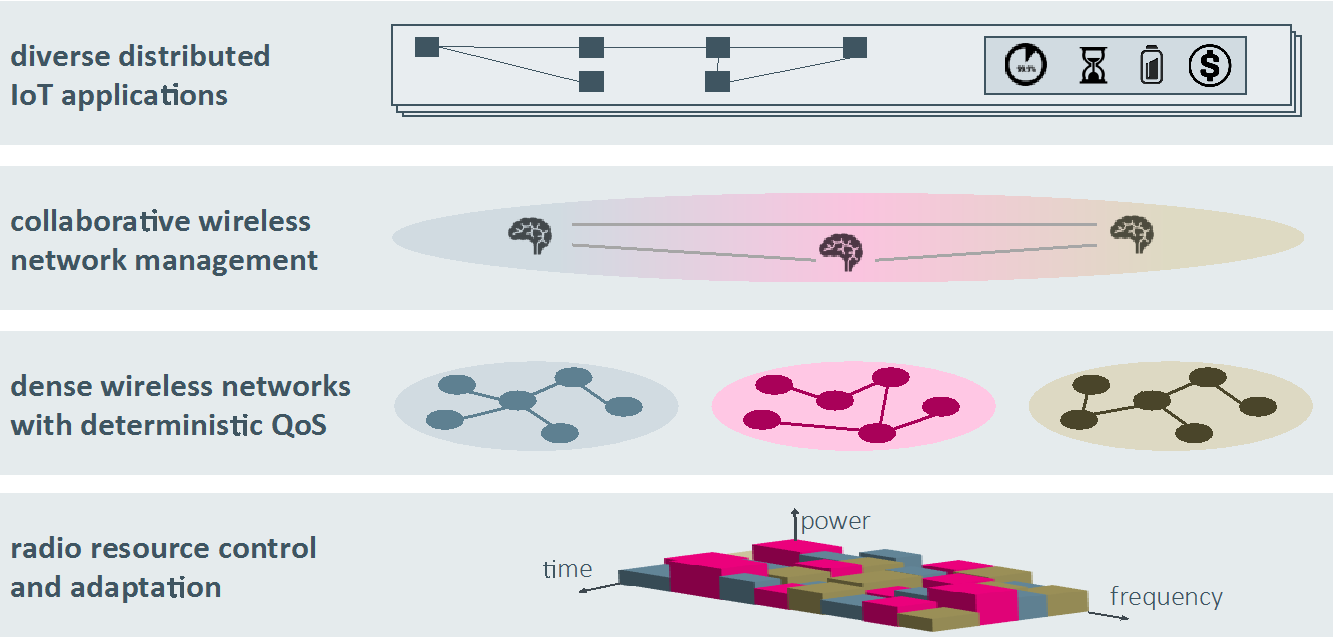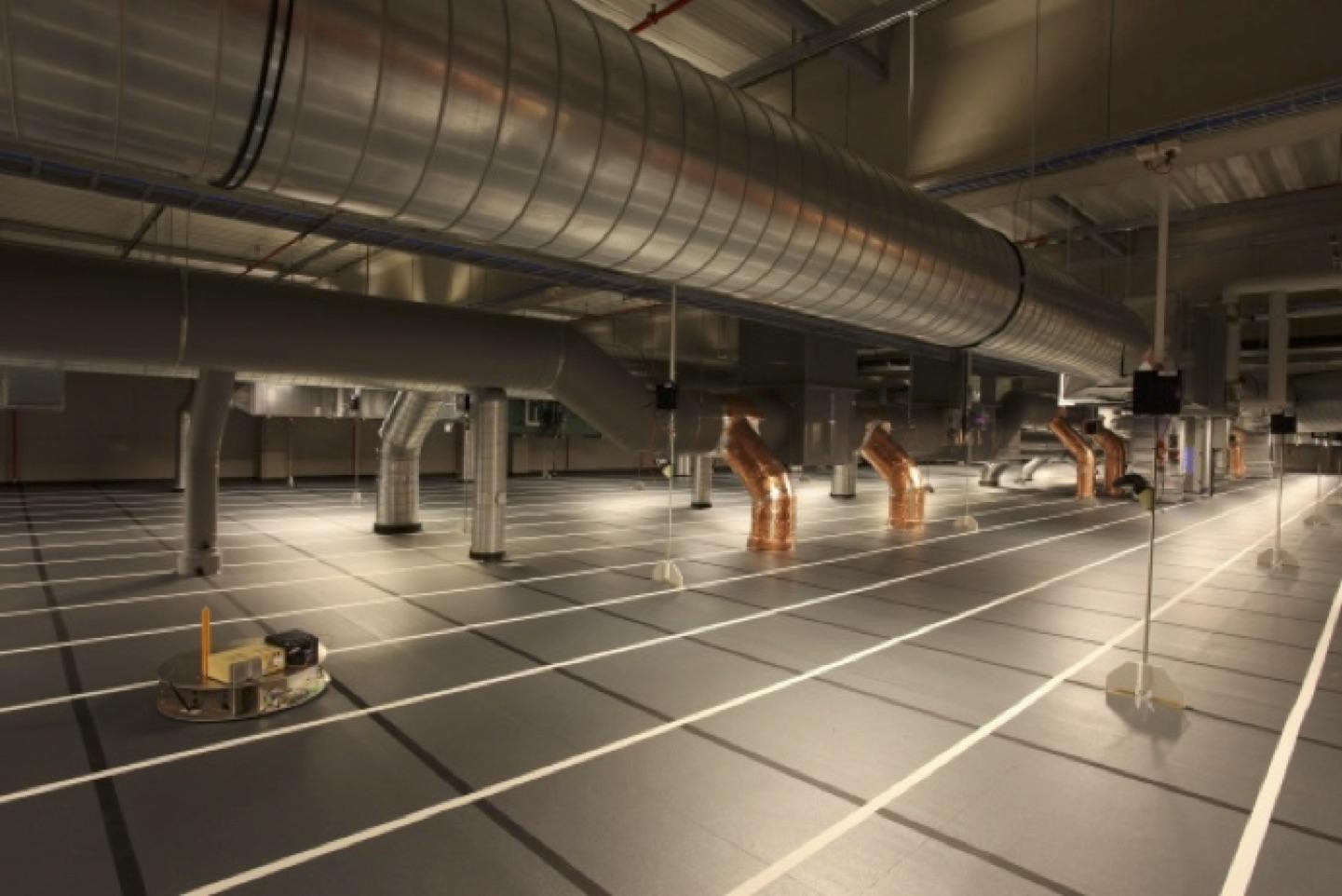Wireless Networking
The increasing density and diversity of connected wireless devices, together with diverging applications requirements, are generating new technological challenges. This calls for (1) collaborative and intelligent solutions to optimize radio resource usage, and (2) for flexible software/hardware architectures enabling runtime instantiation, (re)configuration and (re)programming of wireless devices .
IDLAB has gained ample experience with flexible software/hardware architectures and various wireless technologies and standards (IEEE WLAN/WPAN/WAN/LPWAN, 2G/3G/4G/5G, satellite, software defined radio, cognitive radio) through involvement in numerous national, European and international research programs and through intensive collaborations with many industry partners. The research follows a top-down approach involving user-centric design, theoretical studies, network simulations, experimental validation and field trials. IDLAB is a leading partner in many European projects and international collaborations (US, Brazil, Korea) involving experimentally-driven research.
The wireless activities are structured in 4 research priorities:
- Application-driven network configurability and programmability: focussing on automatic translation of standard-based IoT application dynamics into appropriate IoT network reconfigurations
- Scalability in dense wireless local area networks: realizing a self-managing multi-band gateway of the future supporting inter-gateway coordination and interference avoidance, handovers, QoS-aware flow management and load balancing
- Heterogeneous sub-gigahertz wide area networks for IoT: designing improved MAC strategies, and inter-operator collaboration and virtualization strategies to support coexistence, manageability, scalability, low-latency, reliability & localization
- Collaborative intelligent radio networks: realizing collaborative radio resource management between independent co-located wireless networks consisting of real-time, reconfigurable software define radios by applying advanced learning and reasoning strategies.
Together with industrial partners, IDLab has designed a container tracking solution, which resulted in the startup Track4C. The design combined know-how on multi-radio communication, adaptive MAC design and embedded web service technology, all to enable energy-efficient, scalable, yet flexible data collection and device management in a challenging environment.
Together with industrial partners, IDLab has designed a Wi-Fi based solution for the large-scale generation of user generated content at events such as music concerts. In the SELVIE project, the audience could record video-based selfies, which were then streamed in real-time to the large screens on stage. The technology was showcased at a large concert hall during the tour of the kids group K3.

CoDeNet vision for providing differentiated end-to-end determinism for service delivery on top of dense, dynamic and heterogeneous wireless networks through collaborative network management and flexible resource control and adaptation

Large scale testing facilities are available to evaluate the performance of wireless solutions in challenging & realistic large scale conditions. Available technologies include, amongst others, IEEE 802.11, IEEE 802.15.4, LTE, BLE, UWB, etc. of which several hundredths of remotely accessible devices are permanently installed including tens of Software Defined Radios (SDRs).
